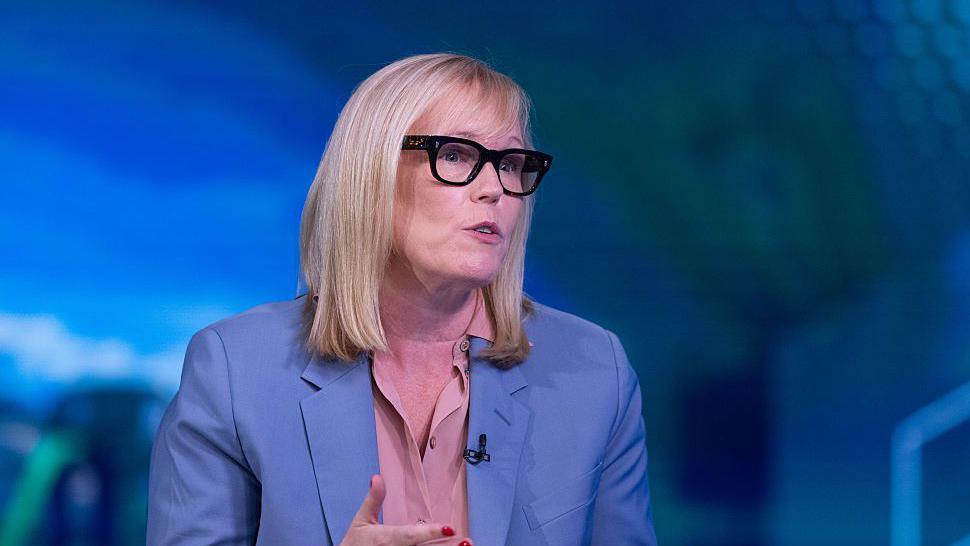Why I got rid of my smartphone for a 'digital detox'
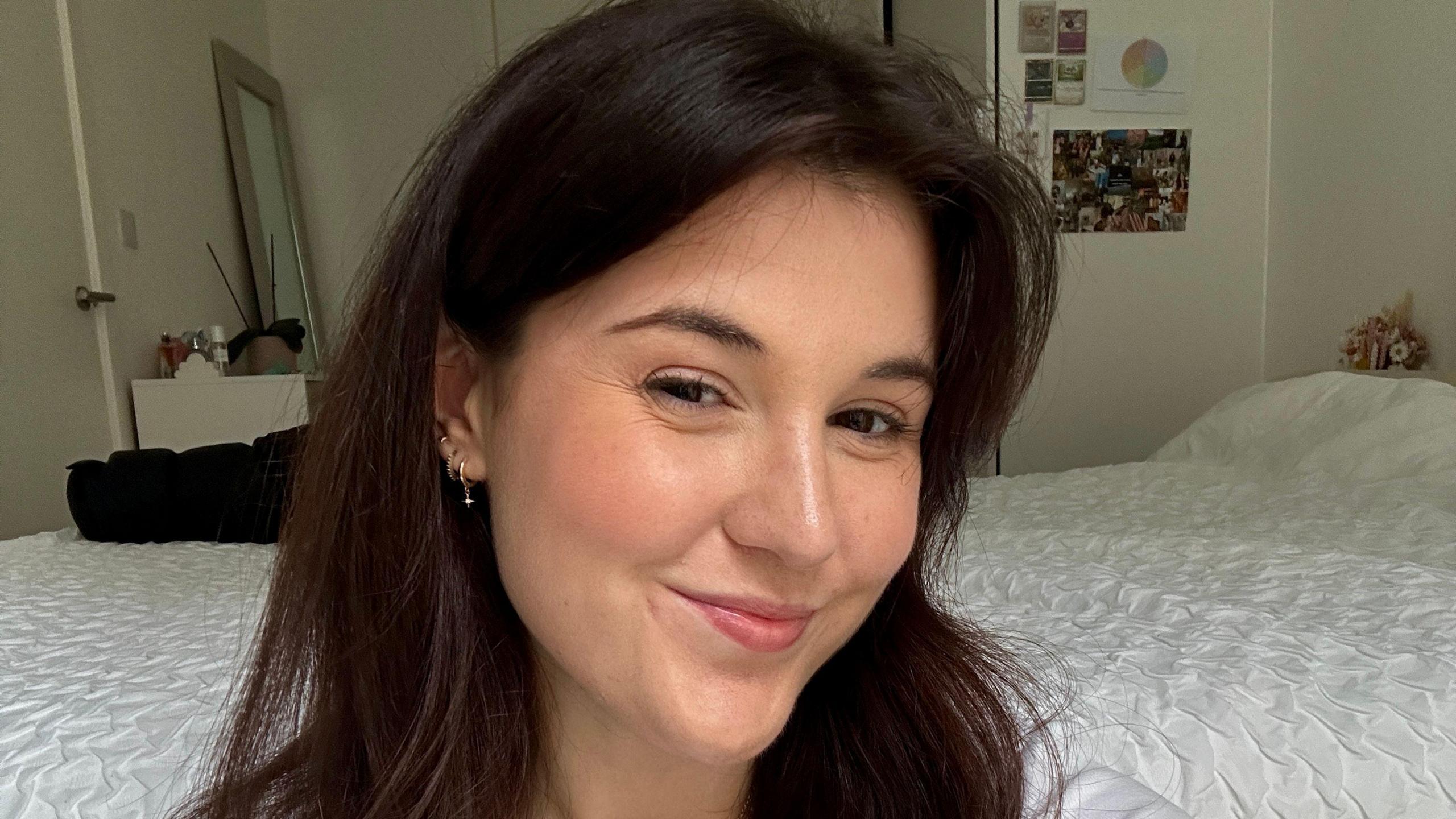
Jess Farnham said she realised her smartphone screen-time was getting out of control
- Published
A woman who got tired of wasting hours scrolling social media on her mobile said swapping her smartphone for an old-style flip-phone "changed her life".
Jess Farnham put herself on a week-long "digital detox" when she realised her screen time was getting out of control - and the challenge has now given her the taste for an even longer stint.
The 24-year-old, who lives in Manchester city centre, said: "The average person spends about 4.5 hours a day on their phone. If you live to be 80 that's 13 years of your life on a phone.
"I didn't want to spend 13 years of my life on TikTok so I knew I had to do something drastic."
She said the detox, which saw her switch her modern smartphone for a calls-only model from the 2000s, showed her how easily she could navigate daily life without the constant pull of social media.
It also improved her mental health, sleep and productivity.
"I was constantly scrolling, constantly on a screen with work and then with my own social media while also complaining that I had no time to do anything," the marketing manager said.
"I just have a better, more fulfilling day without my phone. I have more time for myself and my hobbies, I read more and I'm more productive at work."
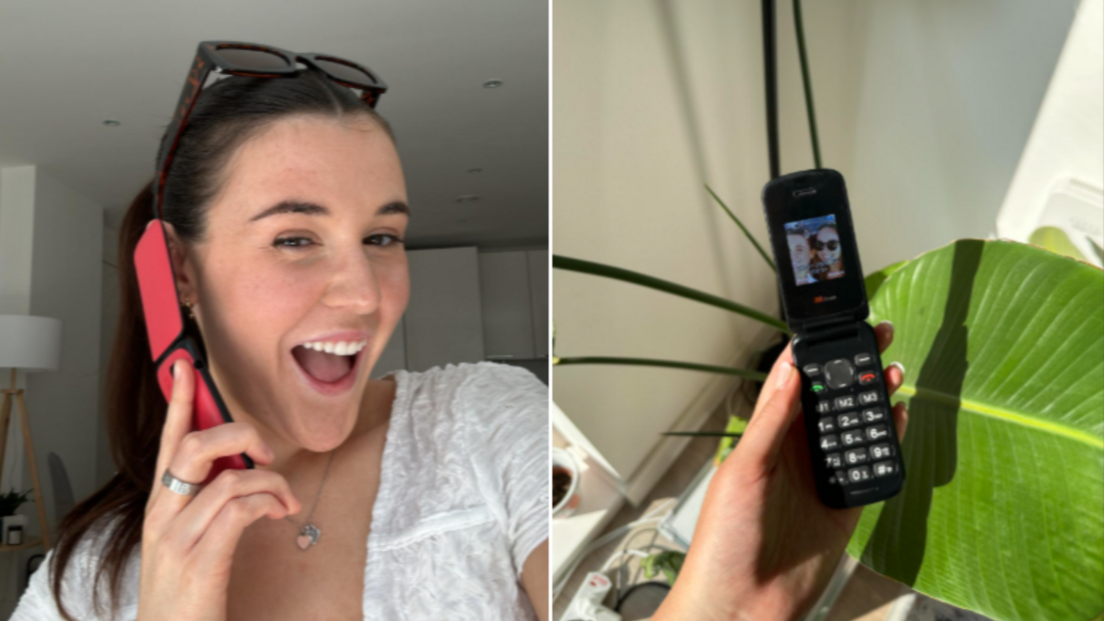
Jess Farnham said people would often comment on her "old relic" flip-phone
Jess said she planned to do the challenge for five days but ended up extending it to seven - and only needing her smartphone for work has prevented her for making it even longer.
"The first 24 hours were the hardest, I felt like I was missing out on everything and it made me quite anxious.
"But by the end of the second day that had completely switched off."
She said most people thought the flip phone was funny and asked why she was using "an old relic" because they had not seen one in years.
"Other people would ask if they could have a go because they'd never seen one before," she said.
She said the detox "completely shifted my perspective" and left her extremely conscious of just how much time she spends on her phone.
"I now have an app that limits my scrolling on TikTok and Instagram to an hour a day," Jess said.
"I try and have at least one day a week off my smartphone and use my flip phone.
"I still feel that fear of missing out at the start but after an hour off my phone I'm so fine."
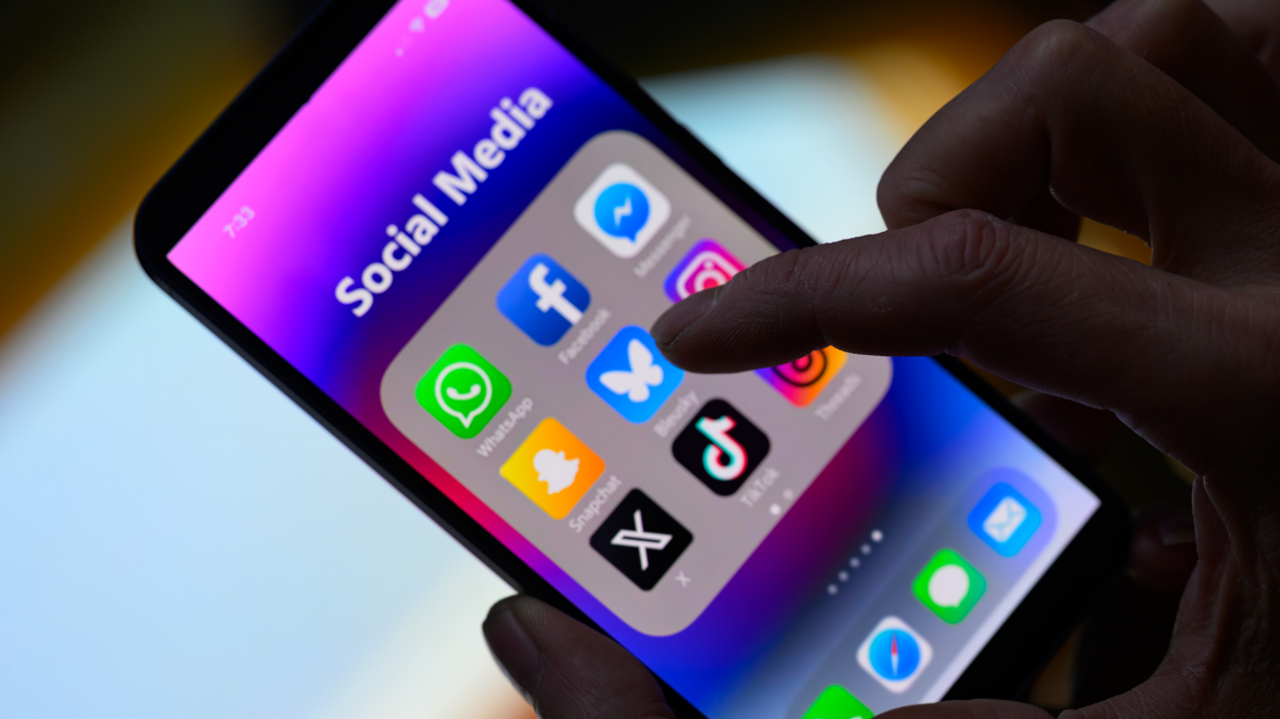
Adults spend an average of three hours and 21 minutes on their phone each day according to one study
Jess documented her detox journey on YouTube and said the reaction has been "incredible".
"So many people got in touch saying they felt the same, like they had no time to do anything else because they were addicted to the dopamine they were getting from their phone," she said.
Jess said she got her first phone, a smartphone, when she was 12 which "seems crazy" to her now. But according to an Ofcom study 82% of 10-12 year-olds now have their own phone.
"For most children and teenagers, social media is how they communicate - it's where friendships are formed and maintained," said Michelle McManus, professor of safeguarding and violence prevention at Manchester Metropolitan University.
She said excessive screen time, particularly "unstructured use of social media", can affect sleep, concentration, self-esteem and, in some cases, mental wellbeing.
"But it's not as simple as 'screens are bad'," she said.
"What matters most is how young people are engaging online, who they're connecting with and what kinds of content and interactions they're being exposed to.
"Having a smartphone from a young age can normalise high levels of online activity before children have the critical thinking skills or emotional maturity to manage online pressures, from comparison and validation loops to exposure to harmful content."
She said a "digital detox" such as the one undertaken by Jess can be a powerful tool to "help young people regain a sense of agency" and to notice how much of their attention, emotion and time has been shaped by algorithms and notifications.
She said the long-term solution should be to "build balance, boundaries and digital resilience."
She said this can be done from an early age but is also possible for adults, who spend an average of three hours and 21 minutes on their phone each day, according to studies by the Institute of Practitioners in Advertising.
People aged 15-24 spend four hours and 49 minutes, the institute said.
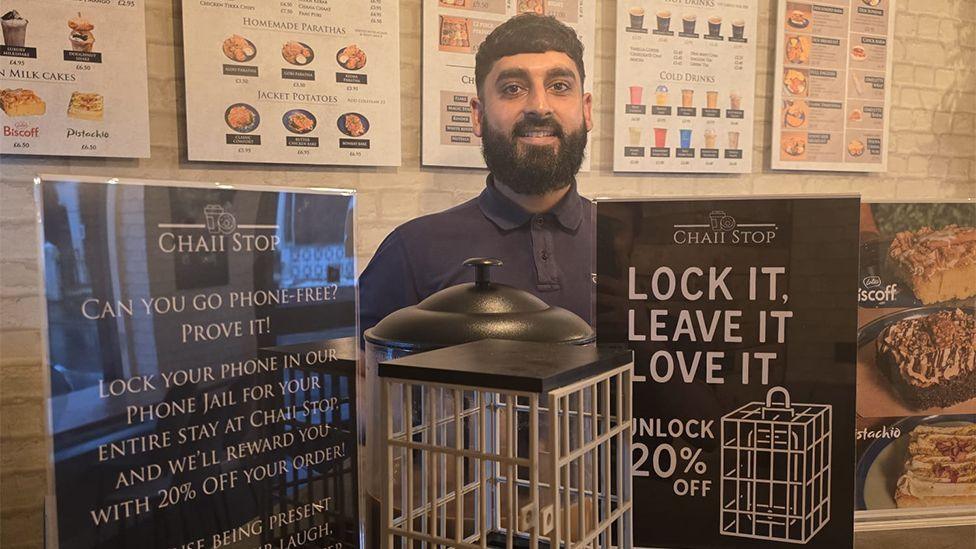
It's good to talk: Usman Hussain wants customers at his cafe to abandon their phones on entry
Some pubs and cafes are now incentive to to try to tempt customers of all ages to leave their devices behind.
Samuel Smith's brewery, which operates about 200 pubs across the UK, has discouraged the use of mobile phones in all of it venues.
"Our pubs are digital detox havens, where phones are not used and authentic connections and relationships flourish," the brewery said in a Facebook post.
Meanwhile, customers in a Lancashire café are being offered a 20% discount if they agree to leave their mobiles in a specially built "phone jail" during their visit.
Usman Hussain, who owns the Chaii Stop on St Paul's Road in Preston, said his cafe was "built for conversations, connections and good vibes."
"I'd just look around and see groups of families, friends, all sitting together, but every single person staring at their phone," he said.
"So we thought: How can we get everyone to connect again?'"
He told how in just a few days "we've had students, families and couples tell us it's made their conversations feel more real, just like old times and it's become a talking point".
Jess has urged anyone who is thinking of completing their own digital detox to "100% do it".
She said people can "start small" with a single phone free-day or by installing app timers on their devices.
"It can be a bit overwhelming at first", she said.
"Phones are a bit of a security blanket for a lot of us. But it's so worthwhile, you will feel so fulfilled."
Get in touch
Tell us which stories we should cover in the North West
Listen to the best of BBC Radio Manchester on Sounds and follow BBC Manchester on Facebook, external, X, external, and Instagram, external. You can also send story ideas via Whatsapp to 0808 100 2230.
Related topics
More like this story
- Published21 October
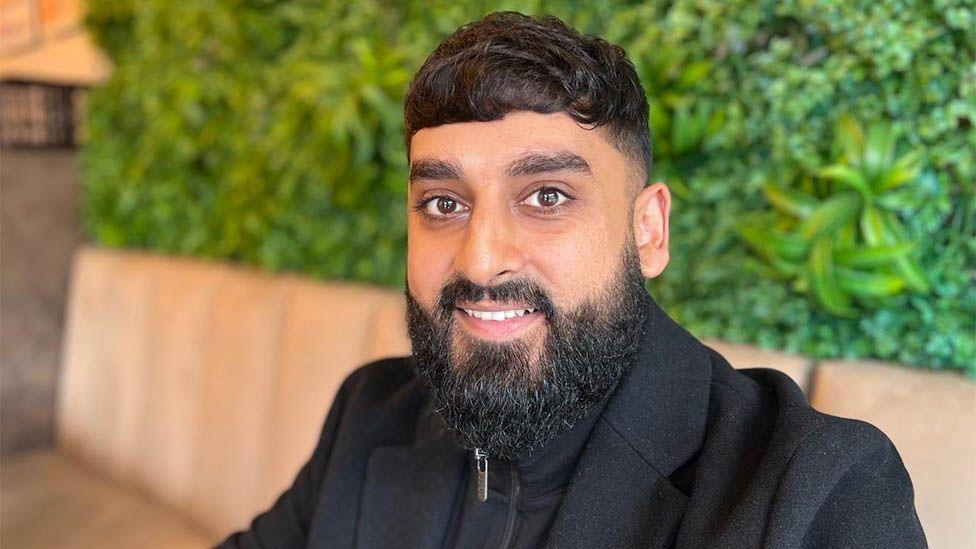
- Published22 October
